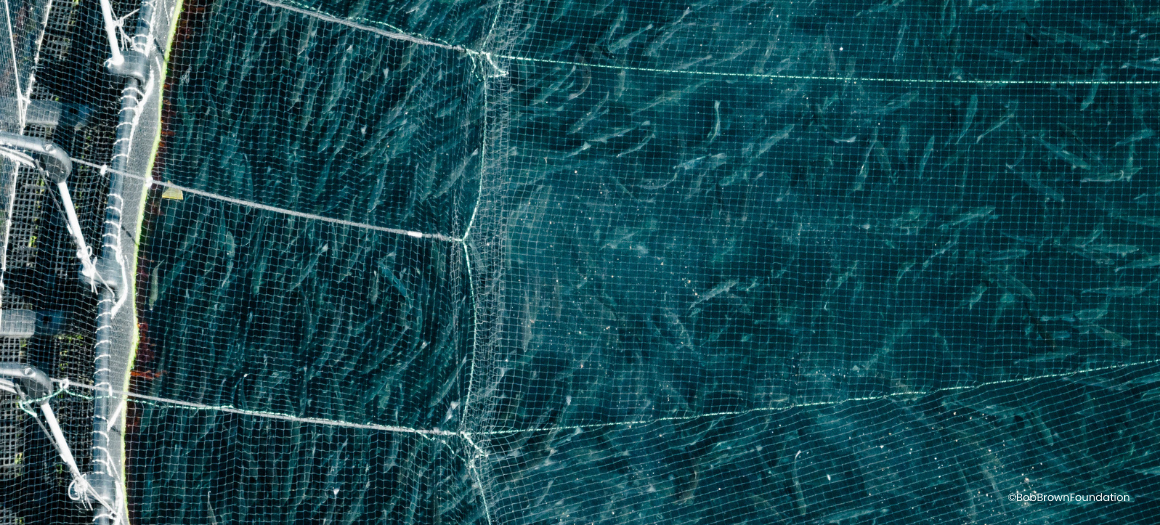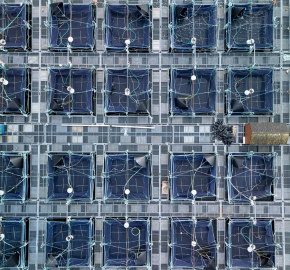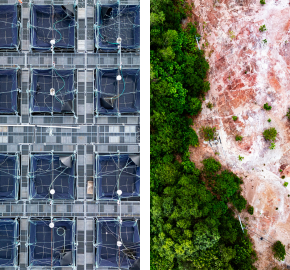Open letter call on the Scottish Government to urgently address salmon farming’s negative economic and environmental impacts

More than 50 businesses, community groups, youth groups and charities from across Scotland are calling on the Scottish Government to justify its long-standing political and policy support for open-net salmon farming.
In an open letter, published today, the coalition of 54 organisations highlight that the cited economic benefits of salmon farming in Scotland have never been balanced against the possible detrimental impacts of the industry on a wide variety of other sectors in the country.
Read the letter
The group of organisations, which span the country, state in the letter: “We write to ask that you urgently re-evaluate your policy on the open-net salmon farming industry. The open-net salmon farming industry is regularly hailed as one of Scotland’s economic success stories.
However, peer-reviewed research has found that the economic benefits of the industry have not been adequately weighed against its detrimental impacts on other sectors of Scotland’s economy (not to mention detrimental impacts on the marine environment, without which there can be no blue economic growth).”
The letter continues: “What is often forgotten is that this industry uses Scotland’s precious natural assets for ‘free’ disposal of its waste and inflicts widespread damage on the ecosystems that support other commercial activities. These are costs that are currently ignored in Scottish Government assessments of the ‘value’ of the industry to Scotland as a whole.”
This intervention comes as Cabinet Secretary Mairi Gougeon is set to appear at the final evidence session for the Rural Affairs and Islands (RAI) committee’s current inquiry into salmon farming on Wednesday 13 November, closing what has been a fiery follow-up inquiry to the Scottish Parliament’s original 2018 inquiry, conducted by two committees, into salmon farming.
It also comes two weeks after the publication of the Scottish Government’s annual Fish Farm Production Survey, which showed that the number of people directly employed on Scottish salmon farms decreased in 2023. [1] The number of full-time jobs on the farms in the Highlands and Islands region created by the industry since 1990 is just 253, an average of only seven per annum.
Much of the focus of the current inquiry has been on the industry’s record-high mortality rates. Controversial footage showing tonnes of dead salmon being cleared from a salmon farm near Dunstaffnage in September, hours before MSPs paid the farm a visit as part of the inquiry, was the subject of questioning by committee MSPs at the industry’s evidence session in October.
Alongside increasing criticism of poor fish welfare on the farms, there have long been concerns about the impact of open-net salmon farming on wild fish (including endangered wild Atlantic salmon), its environmental impacts and sustainability issues.
Rachel Mulrenan, Scotland Director at WildFish, said: “Over the course of this inquiry, the salmon farming industry has furiously tried to deflect attention by characterising any opposition as marginal, extremist, ‘activists’. However, this letter shows that the concerns about salmon farming are widespread across our country, from businesses to youth groups, from community representatives to conservation experts, from vets to environmental research scientists.
“From the impact on wild fish populations and the wider marine space, to rising mortality rates and the welfare nightmare unfolding on these farms – these are legitimate concerns.”
It’s high time the Scottish Government paid attention to the growing unease from the people of Scotland.
“Scottish Government support of the salmon farming industry is looking increasingly out of touch – and, crucially, its policies of supporting expansion of salmon aquaculture are not grounded in the vital evidence needed to validate this support.”
Charles Millar, Executive Director of the Sustainable Inshore Fisheries Trust, added: “It is vitally important that the Scottish Government acknowledges that open cage salmon farming brings costs as well as benefits to the economy of our coastal communities. To name just two examples: creel fishermen can be displaced from their grounds by salmon cages, and freshwater fisheries can suffer from the sea lice that attach themselves to migratory fish.
“At the moment the Government doesn’t have a clear understanding of the true economic impact of its salmon farming policy. How can it make policy decisions about the future of the sector without knowing its impacts?”
Follow the link below to find out more about the negative impacts of open-net salmon farming on wild fish.
Find out more
List of references
[1] https://www.gov.scot/publications/scottish-fish-farm-production-survey-2023/




[…] The number of new full-time jobs in the Highlands & Islands region created by the industry since 1990 is just 253. The recent Fish Farm Production Survey, published last month, showed that the number of jobs on salmon farms decreased in 2023. WildFish Letter […]